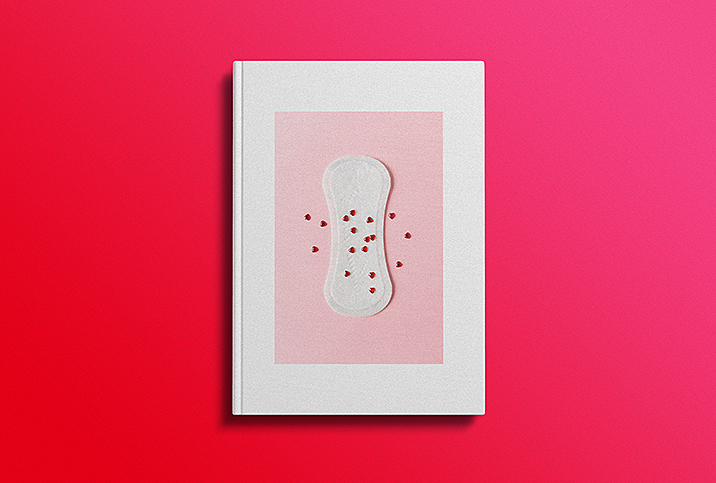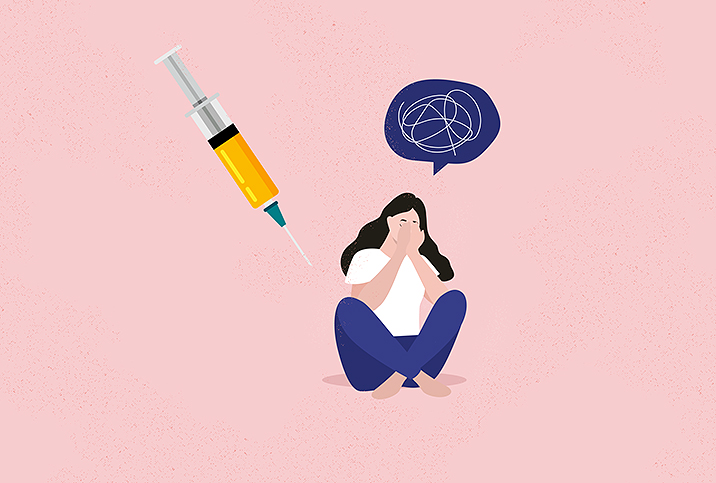What Is a 'Normal' Flow?

No two periods are the same. One month a period could be light and short, and the next it could be heavy and painful. Age, stress, medications, hormonal imbalances and medical conditions can all have an impact on the length and the flow of the period.
For this reason, it can be difficult to spot the signs when something is wrong. By being more in tune with your body and recording the length and the flow of every period, you can build a better picture of your reproductive health.
Everyone's normal is different
A menstrual flow typically occurs every 21 to 35 days, and lasts between two and seven days. However, it's not uncommon to see numbers outside of that range. What appears to be a normal, healthy cycle for one person will not be the same for someone else.
Abi Adams, a women's menstrual cycle, mindset and movement specialist, believes there is no such thing as a normal period. Instead, she said, it's a combination of factors that determine the length and flow of each woman's period. This includes the woman's age, how she handles stress and her lifestyle choices.
The first step to figuring out whether your menstrual flow is "normal" is to track your period every month. This can help you identify common themes and patterns, making it easier to notice abnormal bleeding.
"You can use a simple calendar to mark the days or if you have access to an app on your smartphone, there are many reliable ones on the market that allow you to accurately track your cycle, and [that] is really important," said Nitu Bajekal, M.D., a consultant obstetrician and gynecologist, and founder of Women for Women's Health.
Birth control and your flow
Different birth control methods will have an impact on vaginal bleeding. When you begin taking birth control pills for the first time, it's common to experience spotting outside of your period, a lighter flow or bleeding lasting for three weeks or more.
For some women, these symptoms are normal and will subside after three months as the body gets used to the hormonal changes. It's always recommended you speak to a medical professional if bleeding persists for longer than three weeks, especially if it's accompanied by other symptoms, such as bloating, nausea and pelvic pain.
Progesterone-only pills are an option for women who are breastfeeding, have a history of blood clots or have experienced adverse effects to estrogen. When taking this pill, you can expect to have lighter, irregular or even more frequent periods.
"With the exception of the hormonal IUD, progesterone-only methods—including the progesterone-only pills, implant and Depo-Provera shot—have a more unpredictable bleeding pattern," said Ashley Gish, N.P., a women's health nurse practitioner and educator. "Without estrogen to stabilize the uterine lining, the endometrium can become atrophic and prone to more frequent, irregular breakthrough spotting and bleeding."
Some birth control methods can be highly beneficial for women who experience heavier periods and intense cramping due to polycystic ovarian syndrome (PCOS) or endometriosis. When taken regularly, oral contraceptives can see a reduction in blood loss and pain, and help with regularity.
"It is acceptable to not have periods if you are on hormonal contraception, and that includes the progesterone-hormone-containing pills, injections, implants and intrauterine systems," Bajekal said. "Even with the combined pill (COCP), the pill can be safely taken back to back with a break every few months with benefits and no adverse effects, as the lining does not build up as these are withdrawal bleeds and not true periods."
When you should be concerned
Heavy periods aren't always a sign of a health problem, but they do need to be checked out if they are accompanied by cramping, blood clots, dizziness, nausea or fainting episodes.
Menstrual cycles can be indicative of a woman's overall health. Any sudden changes in bleeding could be a sign of an underlying issue, such as PCOS or endometriosis, and should always be taken seriously.
"One in 5 women suffer from heavy periods worldwide," said Bajekal. "Although most people with heavy periods usually do not have anything seriously wrong with them, quality of life can be seriously affected. Often no underlying cause is found after appropriate investigation. This is known as DUB (dysfunctional uterine bleeding)."
Experiencing sudden light bleeding can be a symptom of a wider issue and should be investigated by a medical professional to rule out any health problems.
"Light periods, or periods that last less than three days or are unusually light in flow, can be a sign that estrogen levels are too low," explained Gish. "This is commonly seen in women with very low body fat, and may also be a sign of hypothyroidism, polycystic ovarian syndrome or premature menopause."
If you notice unexpected changes in your flow or bleeding pattern, seek out help and support from a doctor so they can determine the exact cause.




















